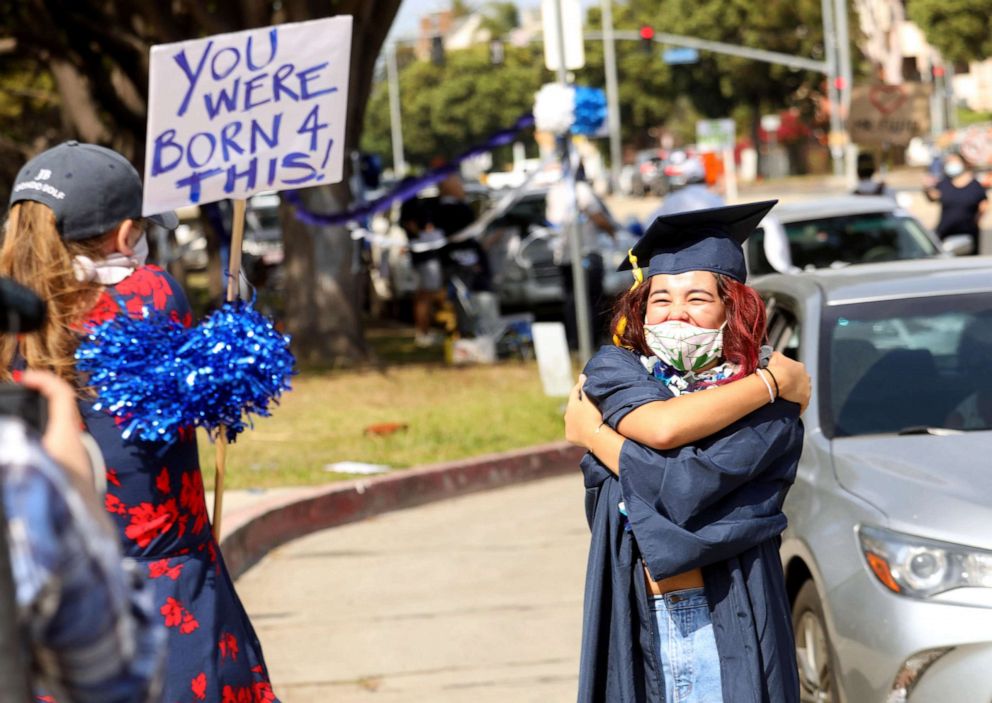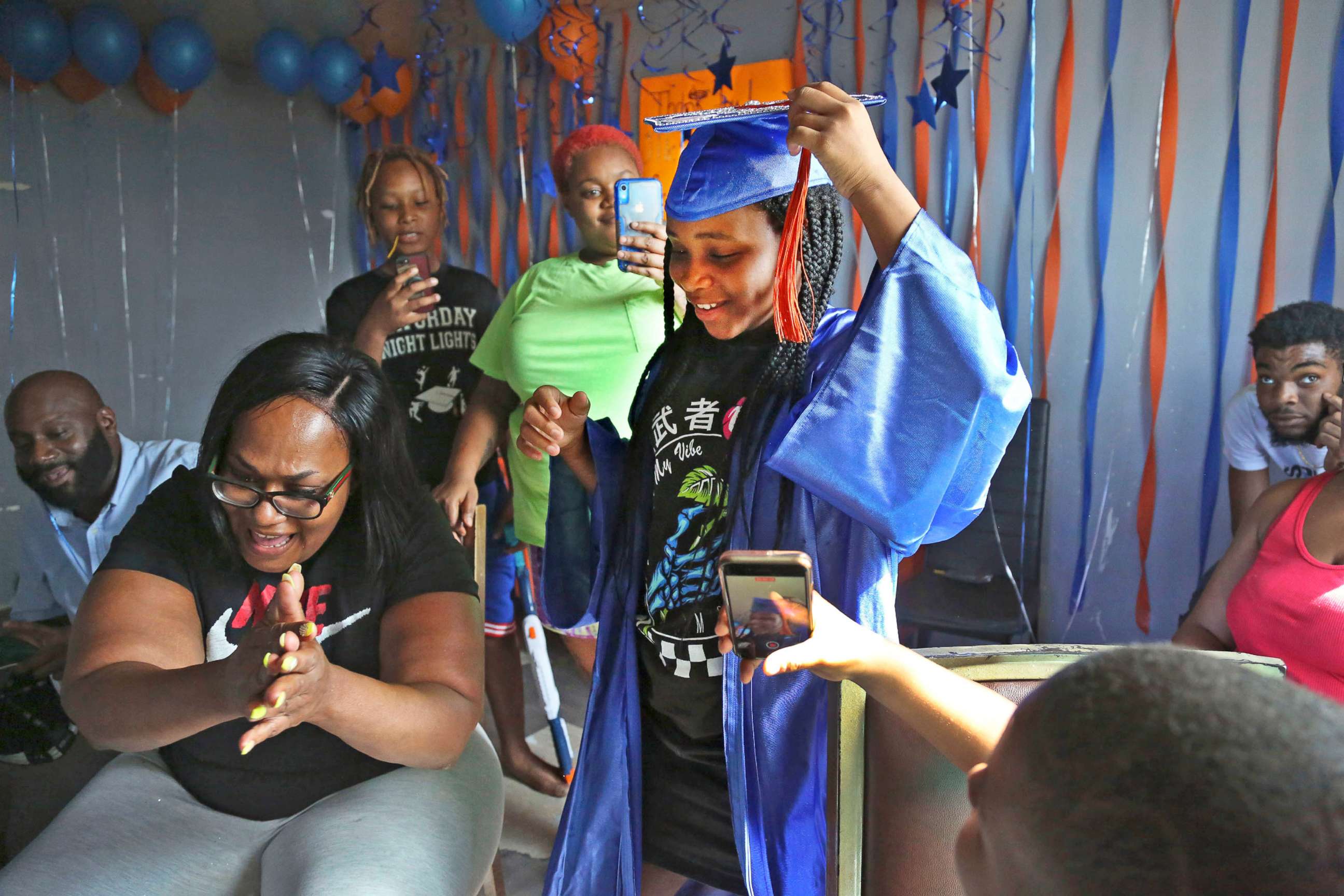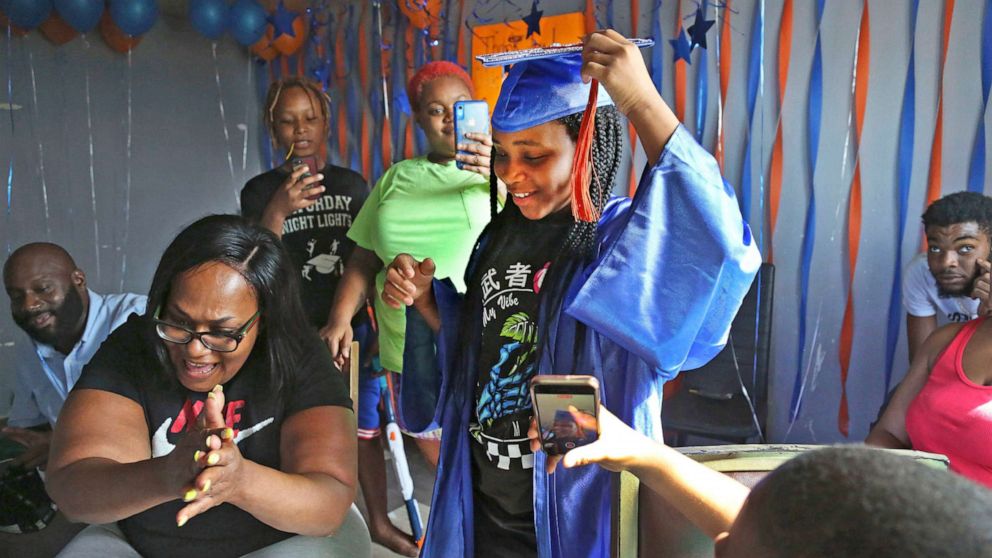What proms and graduations might look like this year with COVID-19 still looming
After prom and graduation were canceled or held virtually last year during COVID-19 pandemic lockdowns, the high school rites of passage will likely look different this spring -- if they happen at all.
Several states have released guidance on safely holding the celebrations, on top of what may already be in place under current health orders, with COVID-19 testing protocols, mask requirements and virtual components among the recommendations.
In Connecticut, which recently shared "strategies" on planning end-of-year school events, the state education and public health departments have recommended that for prom, schools require proof of a negative COVID-19 test for unvaccinated students and limit guests to current students to have better control over testing and contact tracing. Eliminating food and drink, or having designated "mask break" areas, to limit the removal of face coverings are also suggested.
The state also strongly advises that both prom and graduation be held outside as late in the school year as possible.
"I would urge the later you can book it, the better. Just give you a little more flexibility in case something untoward happens," Gov. Ned Lamont said at a press briefing last week, adding that the wait may also allow for warmer weather and higher vaccination rates.
"I can tell you that I feel very confident that your prom and your graduation is gonna place, hopefully outside," he said.

In Ohio, an outdoor prom and graduation are also recommended, with masks and social distancing required. Dancing is permitted, with the guidance that masks be used "whenever 6-foot distancing cannot be consistently maintained."
For graduation, the state health department suggests schools hold multiple events in a space large enough to allow for social distancing, with indoor capacity limited to 25%, as well as offer a virtual option. Some Cincinnati schools have decided to hold their graduation off-site, at Xavier University's Cintas Center, according to the Cincinnatti Inquirer.
In New York, virtual ceremonies are "strongly encouraged," though the state health department is recommending drive-in, drive-through or individual graduations to maximize social distancing. Included in the state's nine-page guidance, other in-person gatherings would need to conduct health screenings, enforce social distancing between households and require masks. Events that exceed the state's gathering limits (currently 100 people indoors or 200 outdoors) would need to require attendees to have a negative COVID-19 test within 72 hours of the event or proof of vaccination.
Graduations can be held starting May 1 and proms starting June 1, with recommendations for the latter including creating dance zones for tables or assigning tables dance floor times.
Several states, such as Texas, have lifted their COVID-19 restrictions, though schools may have local or district measures still in effect. As of early April, ABC Dallas affiliate WFAA found that North Texas school districts are so far mixed on prom. Some are planning to hold it with health protocols in place, while others have canceled it because of venue capacity or dancing restrictions or are still finalizing plans. Several districts are holding graduation outdoors in a stadium.
Massachusetts' Department of Elementary and Secondary Education "strongly recommends" that schools do not have prom, warning that it is an "inherently high-risk activity."
If schools do decide to hold prom, it advises they wait until after the end of the school year, "ideally delaying until such time when most students attending prom will have been vaccinated." They would also have to follow state restrictions, which currently limit indoor events to 100 people and outdoor events to 150 people. Outdoor graduations are not subject to a capacity limit, but must follow other restrictions, including no food or drink served and a limit of 6 guests per graduate.
After a year of mostly Zoom school and virtual game nights, Benjamin Moshes, the senior class president at Newton South High School in Newton, Massachusetts, has been advocating for an outdoor prom that can safely allow his grade to fully gather for the first time since their last school bash, in May 2019.
"I am obviously in support of regulations and keeping events safe because COVID is a bad disease," Moshes told ABC News. "But I also don't think that events that are inherently done in a safe way and are much safer than other things that are allowed to happen should be banned and regulated as much as they have."
School administrators have been supportive of them having prom in some form, Moshes said. Under current state capacity limits, the celebration, scheduled for June 6, would likely need to be held in multiple events to accommodate those who plan to attend from his graduating class, which is about 500 students, he said.
The class president is hoping they can get city clearance to hold an event that can bring everyone together outdoors, such as on a school field or parking lot, with health protocols in place.
Separate events are "better than no prom," he said. "But I don't believe that's the best we can do."
For Dr. Simone Wildes, an infectious disease specialist at South Shore Health and ABC News Medical Unit contributor, an outdoor prom where many of the students are fully vaccinated would be optimal. Otherwise, "I think people should skip the proms," she said.
"A prom is a big party," she said. "There's no way you're going to be able to monitor and manage that group as well as you can for graduation. … Indoors, people getting together, eating, drinking, dancing, I just think that's a high-risk activity at this time."

Planning end-of-year events will likely be a "very difficult decision" for schools that will come down to what each community chooses to do, she said.
"They definitely want to celebrate, but I think the key is just, in the time of COVID, we want to do it safely," she said. "These measures are not going to just disappear overnight."




